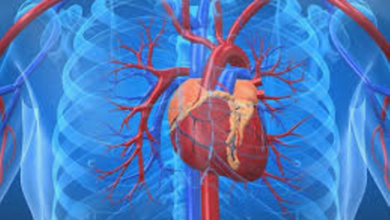Best Natural Diuretics: 6 Supplements, Foods And Drinks

Diuretics are compounds that facilitate the elimination of surplus water and sodium from the body by increasing urine flow. Presently, they are employed to treat conditions including hypertension, edema, and congestive heart failure, which have been investigated and treated for centuries.
Although prescription diuretics are accessible, natural diuretics are gaining popularity due to the lack of adverse effects and toxicity associated with them, as suggested by scientific research. Learn about some of the most well-known natural diuretics and the opinions of health and scientific experts by continuing to read.
What Is a Diuretic and What Does It Treat?
“Diuretics are a class of medications that assist the kidneys in eliminating excess water and electrolytes,” explains Alexander Postalian, M.D., a cardiologist at The Texas Heart Institute in Houston. The kidneys are essential for regulating fluid levels in the body.
Dr. Postalian explains that while the most common reason natural diuretics are prescribed is to lower arterial blood pressure, they are also utilized to prevent fluid accumulation in the case of heart, liver, or kidney dysfunction.
Read More : Everything about 1 terrible heath disease: Flu
As exemplified by heart failure and kidney failure, the body retains surplus water to compensate for impaired cardiac function, or the kidneys are damaged and unable to produce sufficient quantities of urine to eliminate toxic metabolites, explains Pezad Doctor, M.D., a board-certified cardiology fellow affiliated with the University of Texas Southwestern Medical Center.
Dr. Doctor suggests that natural diuretics may be prescribed for moderate fluid retention, such as perimenopausal or premenstrual bloating. However, he notes that natural diuretics are not advised for individuals with medical conditions such as heart failure or kidney failure, as prescription medications provide more precise control over fluid levels. Dr. Doctor advises that while natural diuretics may serve as a beneficial supplement to prescribed medication, it is crucial to consult a physician first in order to identify the underlying cause of fluid retention prior to attempting one.
6 Natural Diuretics: Do They Work?
Typically, natural diuretics are derived from botanical or other naturally occurring substances. Although frequently recommended by naturopaths or clinicians of Chinese medicine, numerous natural diuretics are also readily obtainable in supermarkets.
The exact mechanism by which natural diuretics function remains obscure, according to Dr. Doctor. “However, they are believed to increase blood flow to the kidneys, which increases urine production and fluid excretion.”

Natural treatments, while generally safe, raise concerns due to their unpredictability and the paucity of research on them, according to Dr. Postalian. In contrast to pharmaceuticals that have been approved by the FDA and undergo stringent testing to ensure consistent dosages, natural remedies generally do not undergo comprehensive clinical trials, which renders them less preferred by conventional physicians, he further explains.
Dandelion
According to Dr. Doctor, the nephrons—ular structures located in the kidneys—are affected by the leaves of the dandelion, scientifically referred to as Taraxacum officinale plant. This is because natural diuretics stimulate the excretion of sodium and water through channels within nephrons. According to Jenelle Kim, D.A.C.M., a doctor of Chinese medicine and acupuncture based in San Diego, dandelion is offered in both tea and supplement form. While standard dosages may differ, one to two teaspoons of dried leaves steeped in hot water for three times daily as a tea is a common recommendation.
Existing research on the diuretic effects of dandelions is limited. A small cohort of healthy participants experienced an increase in frequency of urination after receiving Taraxacum officinale extract in a 2009 pilot study (which lasted only one day and involved seventeen participants) . Due to the limited scope and duration of this study, as well as the dearth of current research in this area, further clinical trials are required to delve into the intricacies of the diuretic effects of dandelion.
Hawthorn
A member of the rose family, hawthorn (Crataegus monogyna or Crataegus laevigata) is a flowering tree or shrub. Dr. Doctor states that it has been studied in patients with heart failure, a condition in which the heart fails to pump adequate blood. Heart failure can cause symptoms such as fatigue, foot swelling, and difficulty inhaling. Dr. Kim observes that Hawthorn’s diuretic properties are mild and have not been the subject of extensive research.
A 2002 small clinical trial indicated that crataegus extract might enhance exercise capacity and alleviate symptoms of heart failure in individuals with the condition. However, a 2008 small study found no evidence to support the notion that it slows the progression of heart failure and may even elevate the risk of developing the condition in the early stages . In light of these inconclusive findings, further investigation is warranted.
Dr. Kim adds that hawthorn is typically ingested as an extract or tea, with dosages subject to variation; therefore, it is advisable to adhere to the instructions on the package or seek guidance from a healthcare professional.
Green and Black Tea
Black tea and green tea are both derived from the Camellia sinensis plant. Dr. Kim states that these beverages contain caffeine, a natural diuretics. Limited research has been conducted on the natural diuretics effects of tea in general, and among the studies that do exist, the diuretic activity of black and green tea appears to have been investigated exclusively in animals. However, the general diuretic effects of caffeine are well-known: It facilitates the elimination of excess sodium and water from the body through increased urination.
Dr. Kim advises that while both green and black tea can be consumed as beverages, moderation is essential due to their stimulant contents. Caffeine overdose can result in symptoms such as agitation, insomnia, and rapid pulse rate. An optimal dose of 400 milligrams of caffeine, as recommended by the Food and Drug Administration (FDA), is not generally associated with adverse effects in healthy adults. Nevertheless, due to individual variations in caffeine metabolism, optimal concentrations may differ .
A cup of green tea contains approximately 28 milligrams of caffeine, compared to 47 milligrams in an 8-ounce cup of black tea.
Parsley
A vibrant green plant known as parsley (Petroselinum crispum) is utilized to impart flavor to foods. Throughout history, both the roots and foliage have been employed as a natural diuretics. Although clinical trials investigating parsley as a whole are scarce, Dr. Kim highlights the diuretic effects attributed to its high potassium content and compounds such as apiol and myristicin. Dr. Kim states that parsley has no standard dosage because it can be added to foods such as soups and salads and ingested fresh.
Hibiscus
Popular in traditional Mexican medicine as a diuretic and blood pressure-lowering herb, hibiscus (Hibiscus sabdariffa) contains a compound that increases renal filtration, thereby assisting in the reduction of blood pressure. Considerable clinical research is devoted to examining its impact on blood pressure. Dr. Kim states that hibiscus is commonly ingested as a tea and that there is no standard dosage.
Read More : 10 Tips for Healthy Winter Skin
Coffee
According to Dr. Doctor, coffee is the most frequently ingested diuretic, whether intentionally or unintentionally, because of its caffeine content. Fluid balance research has been conducted on caffeine in general. According to a 2015 meta-analysis of clinical trials that relied heavily on 300 milligrams of caffeine from caffeinated beverages and coffee, caffeine has a negligible diuretic effect on healthy adults and does not cause excessive fluid weight loss [6]. Similar to black and green tea, coffee should be consumed in moderation owing to its caffeine content, according to Dr. Kim. Coffee of 8 ounces in volume contains between 80 and 100 milligrams of caffeine.
Other Natural Ways to Expel Water and Salt
Fruits and vegetables with a high water content, such as watermelon, bell peppers, celery, cucumber, lemon, and watermelon, can aid in the expulsion of water and sodium, according to Dr. Kim and Lizzy Katz, registered dietitians and the diabetes program coordinator at the University of Maryland Capital Region Health. Katz explains that these nutrients stimulate the kidneys to excrete more sodium from the body, thereby aiding in urine production.
Katz adds that physical activity is an excellent method to aid in the elimination of salt and water from the body via perspiration. Dr. Doctor concurs, stating that exercise improves circulation in all body regions, especially in areas where excess fluid typically accumulates, such as the limbs, abdomen, and chest. Reducing sodium and fluid consumption may also be beneficial, he adds.











